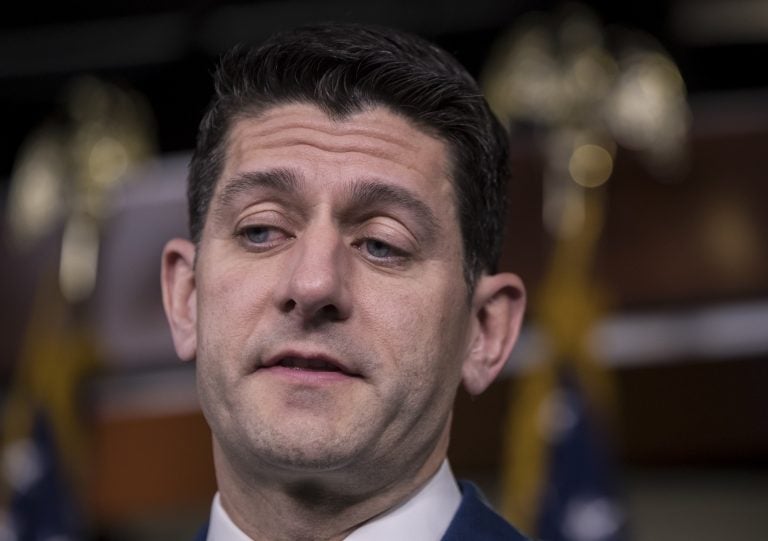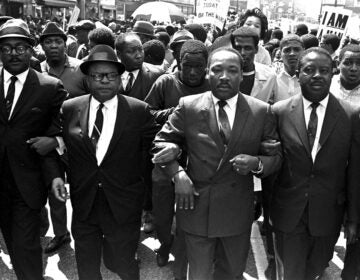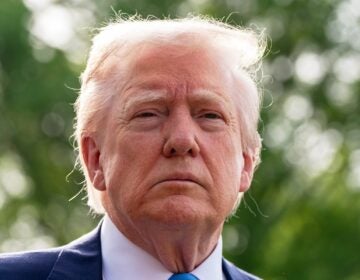Crystal ball alert: My fearless prediction about Paul Ryan
Today I will make a prediction. If it turns out to be right, hail me as a sage. If it turns out to be wrong, forget I ever said it.

Speaker of the House Paul Ryan, R-Wis., meets with reporters following a GOP strategy session, at the Capitol in Washington, Wednesday, March 14, 2018. (J. Scott Applewhite/AP Photo)
Today I will make a prediction. If it turns out to be right, hail me as a sage. If it turns out to be wrong, forget I ever said it.
Paul Ryan will soon announce that he’s quitting the House.
He has yet to file the re-election paperwork that is due on June 1, and I predict he won’t. Next month, he’ll publicly share his decision to give up the Wisconsin seat he has held since age 29 in 1999. He’ll serve out his current term, as congressman and Speaker, as a self-declared lame duck, but he’ll be gone next January.
This scenario makes perfect sense. Just think about it:
He knows a blue wave is building.
If Democrats flip 23 House seats, they’ll control the chamber in 2019 — and the latest forecast says Democrats could flip as many as 45. Their odds spiked again yesterday when the U.S. Supreme Court swatted away the GOP’s last-ditch bid to stop the new, fairer Pennsylvania map that could net a bounty of blue seats. Ryan knows all this, and the last thing he wants is to be relegated to the minority, stripped of the speakership and powerless to pursue his dream of shredding the federal safety net. Under such circumstances, why stay?
He doesn’t want to risk losing his own seat.
Ryan won re-election by a landslide in 2016, but the zeitgeist has shifted. If a Democrat can win a House seat in southwestern Pennsylvania, on so-called Trump turf, in a red district where Democrats didn’t even field a candidate in the two previous elections, in a district that’s 11 percentage points more Republican than the national average, then why should Ryan assume that he’s safe — in a district that’s only five points more Republican than the national average? He may well be aware that Democratic House Speaker Tom Foley lost his re-election race in the red midterm wave of 1994. So there’s precedent.
He’s tired of being Trump’s poodle.
Ryan’s subservience has of course been shameless and pathetic, but let’s remember that Trump was not his first or 10th choice to be the GOP nominee. While Trump’s conservatism (if we can call it that) is fueled by racism, resentment and nativism, Ryan’s conservatism (inspired by, among others, Ronald Reagan and Jack Kemp) is meant to be upbeat and aspirational. But despite the temperamental divide, Ryan forged a Faustian pact with Trump, calculating that an all-GOP government would at least allow him to fulfill his long-gestating policy agenda. But the word from people close to Ryan is that he has no interest in sharing a ballot with Trump again in 2020. (Yeah, no kidding. Better to walk away from the wreckage he has abetted. Who knows what the rule of law will look like in 2020.)
He can declare victory on his way out.
Granted, Ryan probably won’t be able to “reform” Social Security and Medicare this year — that’s tough to do in any election year, and it’s especially tough in a year when Democrats have the political momentum — so that dream is likely DOA. So is the dream of repealing and replacing Obamacare. But he can exit stage right by patting himself on the back for enacting the massive tax cuts of ’17. If an historic achievement can be defined as putting piles of money into the pockets of the rich (especially the GOP’s rich donors), while delivering a relative pittance to the average person, then, yes, Ryan pulled off an historic achievement. He can leave Washington feeling satisfied that he did what he came to do.
He can spend more time with his family.
Politicians who quit their jobs often use that as an excuse, but in Ryan’s case, it would be real. It has long been reported that he wants to be with his three kids during their teenage years (which is now). Ryan is 48; his own father died at 55. By all accounts, the pull of home has been strong, and, lest we forget, Ryan was never fixated on being Speaker in the first place. It fell to him only because John Boehner, wearied of fighting the right-wingers in his caucus, threw up his hands and went home. Ryan told Politico last fall, “I’m the only guy in the modern era who didn’t want this job. I did this because I had to do it.” Next year he can launch a family-friendly second career far removed from the front line of fire. And it would pay better, too.
Could I be wrong about all this? Sure. If he were to announce that he’s foregoing re-election, the resultant shock wave would be deafening. It would cement the perception that Republicans are destined to be shellacked in November. (The inescapable narrative: Even their own leader is bailing!) So perhaps Ryan is too loyal to his House mates to inflict such pain. That’s my best self-rebuttal.
On the other hand, House Republicans are well aware that ’18 will be treacherous. When Ryan announces that he’s bailing, his news will merely confirm what they already know. His staying won’t save them. So, for the reasons I’ve listed, he’s going.
Yes, I feel very confident about my Ryan prediction —just as I was on Nov. 7, 2016 when I foresaw a relatively narrow Hillary victory, because “I tend to believe that most voters will prefer imperfect continuity to the existential dangers of an authoritarian future.”
What can I say. I’m trying to bat .500.
—
Meanwhile, up the avenue at the dysfunctional White House, Trump has beefed up his anti-Mueller legal team by hiring former U.S. attorney Joseph diGenova. Most of the news has been focused on diGenova’s recent remarks on Fox News (natch), where he has contended without a shred of evidence (natch) that the whole Russian probe is just an attempt to frame Trump for fake crimes.
But I’m focused on the guest column that diGenova wrote in The Wall Street Journal on March 6, 1997. One year before the Monica Lewinsky scandal, diGenova was fixated on getting President Clinton indicted for … whatever.
Trump in his dealings with the FBI and Justice Department has behaved as if he’s above the law; indeed, one of his own lawyers, John Dowd, said recently that “a president cannot obstruct justice because he is the chief law enforcement officer.” Well, guess what. I’ve pulled diGenova’s column from behind the Journal’s paywall, and I will now share the key passages. Smear them with whipped cream and they’ll be extra delicious:
“On its face, there doesn’t seem to be any reason why the president can’t be held liable for violating the law. One can roam through the criminal statutes — indeed through the Constitution itself — and nowhere find an addendum stating that a certain act is ‘unlawful, except when committed by the president of the United States.’ [And] neither should any independent counsel be reluctant to prosecute based on some vague concept of presidential immunity …
“Yes, the president is the chief enforcer of the laws. But this is precisely why the independent counsel was created. Independent counsels are not appointed by the White House, so presumably they should be free to pursue criminal charges against the president if his actions warrant it …
“The nation, in fact, could conceivably benefit from the indictment of a president. It would teach the valuable civics lesson that no one is above the law. The Founders created a presidency, not a monarchy.”
So says Trump’s new lawyer. Thanks, Joe!
WHYY is your source for fact-based, in-depth journalism and information. As a nonprofit organization, we rely on financial support from readers like you. Please give today.




